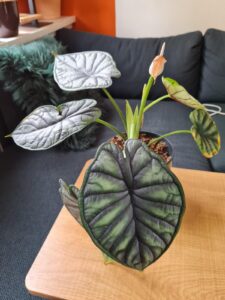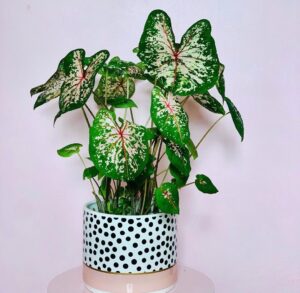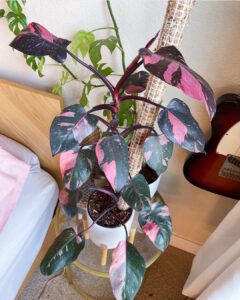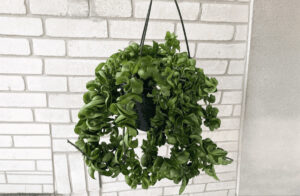
In this article, we’ll cover everything you need to know to grow herbs indoors during winter, including choosing the right herbs, providing adequate lighting and temperature, and harvesting for maximum yield. We’ll also answer some frequently asked questions about specific herbs and provide tips for transitioning your herbs indoors and outdoors.
In this article
- 1 Choosing the Right Herbs for Indoor Growth
- 2 How to Maintain an Indoor Herb Garden Year-Round
- 3 Will Herbs Survive Winter in Pots?
- 4 Specific Herb Winter Survival Questions
- 5 How to Care for Indoor Winter Herbs
- 6 How to Successfully Bring Your Herbs Indoors
- 7 When It’s Safe to Return Your Herbs Outdoors
Choosing the Right Herbs for Indoor Growth
When choosing herbs to grow indoors during winter, it’s important to select varieties that are well-suited to indoor growing conditions.
Some herbs that do well indoors include:
- Chives
- Mint
- Oregano
- Parsley
- Sage
- Thyme
Other Herbs to Consider and Handling Difficult Ones
Other herbs that can be grown indoors during winter include rosemary, lavender, and bay. These herbs can be more challenging to grow indoors, but with the right care, they can thrive.
What Herbs Can Be Brought Inside for Winter?
Most herbs can be brought inside for winter, but some are better suited to indoor growing conditions than others. Herbs that do well indoors include chives, mint, oregano, parsley, sage, and thyme.
Do Any Herbs Grow During Winter?
Yes, some herbs can continue to grow during winter, especially if they are provided with adequate lighting and temperature. Herbs that can grow during winter include chives, mint, oregano, parsley, sage, and thyme.
How to Maintain an Indoor Herb Garden Year-Round
To maintain an indoor herb garden year-round, follow these tips:
Selecting the Optimal Indoor Location for Your Herb Garden
Choose a location that receives plenty of natural light, such as a south-facing window. If your home doesn’t have a sunny window, consider using artificial lighting to supplement natural light.
Ensuring Adequate Drainage for Indoor Herb Plants
Make sure your herb plants are planted in well-draining soil and that their containers have drainage holes to prevent water from accumulating and causing root rot.
Providing Appropriate Indoor Temperatures for Herbs
Most herbs prefer temperatures between 60 and 70 degrees Fahrenheit. Keep your indoor herb garden in a location that stays within this temperature range.
Harvesting Herbs Regularly for Maximum Yield
Harvest your herbs regularly to encourage new growth and prevent them from becoming too leggy. Use sharp scissors or pruning shears to cut the stems just above a leaf node.
Do you know your parsley from your cilantro?
Take these 6 easy questions and test your herb knowledge.
Have fun!

Question
Your answer:
Correct answer:
Your Answers
Will Herbs Survive Winter in Pots?
Yes, herbs can survive winter in pots as long as they are provided with adequate protection from the cold. You can protect potted herbs from the cold by placing them in a cold frame or cloche, adding a thick layer of coarse mulch over them, or moving them into a frost-free greenhouse or sun porch.
Specific Herb Winter Survival Questions
Will Rosemary Thrive Through the Winter?
Rosemary can be challenging to grow indoors during winter, but it can be done with the right care. Make sure your rosemary plant is located in a sunny window and that it is not overwatered.
Can Mint Survive the Winter Months?
Yes, mint can survive the winter months as long as it is provided with adequate lighting and temperature. Keep your mint plant in a sunny window or under artificial lighting and make sure it is not overwatered.
Oregano’s Chances of Surviving Winter
Oregano can survive the winter months as long as it is protected from wet conditions and provided with adequate lighting and temperature. Place your oregano plant in a sunny window or under artificial lighting and make sure it is not overwatered.
Transitioning Potted Rosemary Indoors for Winter
To transition potted rosemary indoors for winter, gradually reduce the amount of water you give it and move it to a location that receives less sunlight. This will help the plant adjust to indoor growing conditions.
How to Care for Indoor Winter Herbs
To care for indoor winter herbs, follow these tips:
Properly Watering Your Indoor Herbs
Water your indoor herbs when the top inch of soil feels dry to the touch. Make sure not to overwater, as this can cause root rot.
Fertilization Techniques for Providing Nutrients
Fertilize your indoor herbs once a month with a balanced fertilizer to provide them with the nutrients they need to thrive.
Rotating Herb Containers for Even Growth
Rotate your herb containers every few days to ensure even growth and prevent your herbs from leaning towards the light.
Harvesting and Pruning Indoor Herbs
Harvest your indoor herbs regularly to encourage new growth and prevent them from becoming too leggy. Use sharp scissors or pruning shears to cut the stems just above a leaf node.
Repotting When Necessary for Healthy Growth
If your indoor herbs become root-bound, repot them into a larger container to promote healthy growth.
How to Successfully Bring Your Herbs Indoors
Bringing your herbs indoors for winter can help protect them from cold temperatures and wet conditions, which can cause them to die. It also allows you to continue harvesting fresh herbs throughout the winter months.
As a general rule, it’s best to bring your herbs inside before the first frost.
To successfully transition your herbs indoors, gradually reduce the amount of water you give them and move them to a location that receives less sunlight. This will help your herbs adjust to indoor growing conditions.
When It’s Safe to Return Your Herbs Outdoors
It’s safe to return your herbs outdoors once the danger of frost has passed and the weather has warmed up. Make sure to gradually acclimate your herbs to outdoor growing conditions by exposing them to sunlight and wind for short periods of time before planting them outside.
Growing herbs indoors during winter can be a rewarding and enjoyable experience.
By following the tips and techniques outlined in this article, you can keep your herb garden alive and thriving all season long.
Do you REALLY know your gardening?
Take this quiz to see if you are a gardening expert.
These 6 questions are really tough!! Good luck!

Question
Your answer:
Correct answer:
Your Answers
Happy gardening!







